Bar Rurale, Mezzolombardo, Italy
An ephemeral summer project by Agricola Foradori: a vineyard bar à vin with organic, local and seasonal produce, bistro feelings, and unique wines by the glass (or bottle)
This cannot be a review because Bar Rurale does not exist.
It is an ephemeral manifestation of springtime and summertime, opening up when possible and under the circumstances that make it possible, a unique - this, yes - experience for the lucky few who happen to pass be there, be present, enjoy the moment—powered by nature, by a series of serendipitous women, and the joy of organic, seasonal, sustainable agriculture.
It is my favourite place in summer, yet it does not exist. Come with me. I will tell you a story.
Imagine a vineyard.
It's perfect: urban, enshrined in old, round rocks lifted off the nearby river soils, surrounded by towering mountains covered in woods, with gigantic slabs of vertical stones that reflect light and heat.
Imagine this vineyard surrounded by a small provincial town with a beautiful Francisca convent, pleasant Art Nouveau villas, and no tourism whatsoever because there is not much to Instagram or to do around here. Safe for winemaking: this garden is enshrined in the most beautiful winemaking area in the Alps, with vineyards crawling up the mountains - every year, a bit higher, it seems. Almost at the confluence of an Alpine river with the majestic Adige, the famous river sung by the original German hymn is now prohibited.
The river is now firmly on Italian soil, but its languages are still multiple. One of them is agriculture, and by extension, winemaking.
At some point, this vineyard became magical.
Was it when it became all organic? Was it when it started working within the parameters of biodynamic agriculture? Was it when it included agriculture and farming to close the circle of sustainability? I do not know—this winery became iconic and mythical in a generation between Elisabetta, Myrtha, and Theo.
They say, “Wine has inspired, nourished, guided, and brought us into the world. As time passed and we became more aware of our agricultural project, we opened up to a different dimension, inspired by the closed-loop farm model, the basis of the biodynamic cultivation method.”
Foradori was one of the first in the area to adopt biodynamic and organic farming—alongside a bunch of hippies and weirdos, like my parents, who ran the local herbal shop for more than forty years, and the owners of Maso del Gusto (producing apples, apple snacks, apple juice, and delicious cider; recently, they have also embraced organic farming with a farmers market and delicious cider).
For me, born and raised on the principle of organic, sustainable, local produce, daughter of self-producers, eating mostly macrobiotic food, and slow food member since its inception, Foradori feels like home.
And Bar Rurale feels like magic.
Foradori’s wines are iconic, and I will not talk for long about their wines.
You probably already know them and are familiar with their viticulture and philosophy. They are among my favourites in Italy and one of the few I drink these days.
What makes them even more remarkable is that you can only buy some editions in Mezzolombardo: those wines without sulphites, especially the über-natural ones, are not shipped. This makes them unique: you must come here actively, enter the shop, and purchase them on location to drink them.
This makes them more special than a “limited edition” than many more expensive wines available.
Makes them, in a word, unique.
My all-time favourites are Fuoripista Pinot Grigio (a rare grape!), Fontanasanta Nosiola white, Lezer Teroldego (a summer red), TuttiFrutti red (another summer wine, a limited edition they made in 2024, bottle pictured above), and always and forever Sgarzon Teroldego (my better half prefers Granato or Morei, and we agree on Manzoni Bianco). Our cellar in Italy is mainly divided among these wines.
Bar Rurale has Myrtha Zierock as a powerhouse of the event.
Daughter of Elisabetta Foradori, Myrtha is an agricultural goddess interested in the whole natural cycle, not only in what winemaking is. Through her, the seeds her father and mother planted came to life, blooming in a beautiful garden.
She is a true farmfluencer, having developed a passion for vegetables.
She aims to produce high-quality vegetables as respected as a bottle of wine. In synergy with the work on the vines, she has specialised in winter vegetables (she and I share a deep love for radicchio, which
, , and share around here).Cool as a cucumber, she is a grinding machine for learning all about farming in harsh and adverse conditions. She is a true hero of agricultural resistance and an inspirational woman for her respect of life-work balance—perfectly attuned to nature, as usual at Foradori. She is also an excellent communicator, with sharp ideas and a straightforward presentation.
From 2019 until 2024, Foradori Alimentari has had a small herd of Grigio Alpina, an ancient bovine breed typical of the Alps. This breed is strongly linked to the mountains for its agility and adaptability to environments with steep slopes.
The cows graze for 5 months at a high altitude at Malga Telvagola on the Brocon Pass. They graze daily in the vineyard in the remaining months, finding grass and green manure available in spring and autumn. In winter, they are fed hay from Monte Baldo, alfalfa, and barley.
They say, “2019, the first year as cheesemakers, the start of the “transformation”: we knew how to transform grapes into wine. Now, with humility and much to learn, we transform milk into cheese, whey into a healthy drink full of vitality.”
Meet Irene Piazza, cascara of Malga Telvagola, another mythical woman in the Foradori magical circle. She used to work closely with Elisabetta Foradori in the cheesemaking side of Agricola.
Their cheeses are delicate, like Seimani (my favourite), the fruit of an agricultural alliance involving three women linked by a shared vision of agriculture: Irene's cheese produced with milk from grazing cows, Elisabetta's amphorae where the cheese is stored, and Marina's aromatic herbs and hay grown at 1,000 meters and dried with a mastery that is all hers). I adored their Blau-Blau, a Roquefort-ish cheese. Another cheese I loved was 150 - like the litres of milk needed to make it.
As of 2025, Irene embarked on their project, applauded by former business partners at Foradori. Currently, Myrtha is working with a series of producers and herders while waiting for her cow flock to grow in numbers so that she can match requests. Expect some news in this sense, and meanwhile, you will still have cheese on the table, handpicked and carefully selected by the Foradori team.
Of course, there are also cured meats.
“Since we started processing the milk of our Grigio Alpines, we have also introduced pigs into the company: they help us manage the whey and the vegetable waste left”, they say. “The animals arrived at Foradori in 2010; they taught us that being a farmer meant cultivating the land and vineyards and knowing how to welcome and understand the cattle, chickens, pigs, and bees”.
Foradori’s four pigs are raised semi-wild: they spend the winter in Fontanasanta and the summer in the mountain pastures at Malga Telvagola with a dietary supplement based on whey, vegetables and barley.
The meat processing results from continuous and profitable exchange and collaboration with the artisan butcher's shop/sausage transformer Flaim, which has operated since 1947 in the nearby Val di Non. I like this place a lot and wrote about it on Substack earlier.
I eat plant-based for most of my diet. Still, their guanciale and lardo (alongside my uncle Giann'’s mortandela) are the only cured meats entering my household, as they are so extraordinary and produced once per year for my guests: when it is over, it is over, and I do not purchase any other.
Kimchi, fermented vegetables, preserved fruits, and preserved vegetables are the bountiful byproduct of Foradori’s growing interest in blending biodynamic agriculture with winemaking: if you stroll around their vineyards, you will see sprouts, leaves, and veggies eyeing in between the vineyard rows, in a mutual companionship that finds its most beautiful expression at the table.
Like at Bar Rurale.
And so, what is Bar Rurale?
In 2022 and again in 2024, every Thursday and Friday during the summer, at Azienda Agricola Foradori, a handful of colourful tables and foldable chairs are thrown out in the vineyard to enjoy an aperitif.
In addition to their renowned wines, guests can taste their cheeses produced with the raw milk of their cows or a platter of tasty vegetables and cured meats from their homegrown pigs. Azienda Agricola Foradori, or small local producers, make everything on the table.
But there is more.
Cheffe Maysa Rossato has been Foradori's resident cook, vegetable grower, preserver, and transformer since 2024. Her sweet Brazilian accent reverberates in the delicatessen of her culinary art. She could have interned at Arpége for what we know, as her plates are carefully curated yet whimsical. Yet again, they are entirely grounded on earth, firmly biodynamic, seasonal, ultra-local, and delicious.
I like her cuisine, philosophy, and persona.
She is shy and elusive in real life as she is on social media. She works as “harvest chef” for the vineyard workers, doubles as a forager, preserver, and transformer, triples as Cheffe for bar Rurale, and multiplies infinitely in her off-season times when she returns to Brazil, enchanting everyone.
In summer 2025, another Chef will take the reins of the kitchens, while Maysa works elsewhere, with the promise of returning one day.
Hospitality in the past couple of years was in the hands of another capable, delightful and strong woman: Sonia Peratoner was the welcoming face of the shop, of some of the guided tastings and tours, and one of the powerhouses making every Bar Rurale night a special moment for the guests.
Hospitality is an art and a charm, and creating an open-air bistro to entice and elevate a simple paper cloth protecting a table into a dining set is an innate quality that Sonia possessed, nonchalantly transforming a picnic into fine dining. She will be back soon, as she is taking some well-deserved family time.
Bar Rurale is wine, food, and hospitality - that we established.
It is also a dream: an evening spent in a beautifully tended garden demonstrating how hard work and love come back in the form of fruits, vegetables, and more. It is a parenthesis of beauty and solace in a world that asks us to churn endlessly, to sacrifice pleasure for “functionalism”, and to embrace hustles instead of finding meaning in our lives.
Foradori could have set up the usual tasting wine bar for posh customers and Instagrammers.
Yet, they chose to invest time and resources in developing a full agri-business with care and invest time and effort in an ephemeral project that doesn’t bring accolades and is only available to locals (who love it and come in flocks) and selected few visitors passing by this region that is not sexy as Barolo, not flooded with American money like Tuscany, and not contrarian and hyped by the natty wine crowd like Friuli.
If you ask me where I’d rather spend every summer night, hanging out in the fresh air, soaking up the summer haze, and having a bite with my friends, family, or my better half, Bar Rurale.
My winemaking friends (such as Pedro and Sonia of Las Vedras) must already be tired of listening to me for hours describing how I love Bar Rurale and miss it and how they should come next summer and dine out with us, pretty please.
Every spring, I am afraid Bar Rurale will be gone—they skipped 2023 due to a staff shortage. Every time I went to see Sonia at the Foradori shop, I moped with her about this loss that could not be. I even ambushed Myrtha at a wine tasting to ask her about Bar Rurale a few months ago. This is how much I love it.
The picture of Maysa’s panzanella (above) with large chunks of Panificio Moderno’s crostini sends me into heaven. The slightly escabeche-sque cured onion platter she served us one night still lingers in my taste buds.
I replicated her simple, fresh lettuce salad with tahini sauce and crunchy buckwheat all summer.
A simple cuisine - its temporary status doesn't detract from its allure, and its precarious working conditions inside a garden shed converted into a tiny kitchen are a marvel in logistics and crafts.
How can a simple tomato on sourdough taste so perfect?
This is the magic of Bar Rurale.
Have a drink—they always open delicious bottles from their “archives.”
Order a bottle you can bring home and eat everything on the short but tasty menu. Feel the magic of a whimsical place that, in reality, doesn’t exist, and yet it’s the most tangible and beautiful expression of agricultural love.
Some information
Booking for Bar Rurale e Bar Rurale Special Events: https://www.agricolaforadori.com/visit-us/
Tel. +39 0461601046
Mail info@agricolaforadori.com
Azienda Agricola Foradori S.s - Via Damiano Chiesa, 1 - 38017 Mezzolombardo (TN)
One last reflection.
Bar Rurale is an ephemeral manifestation of gastronomy's persistence. When something is good, it comes to life. When something is simple yet not simplistic, it reaches everyone’s heart. It is, and it is not, existing in full for those who have experimented it through time, and yet near to impossible to describe in canonical terms, because it does not, ultimately, exist.
Bar Rurale. A Midsummer’s Dream.





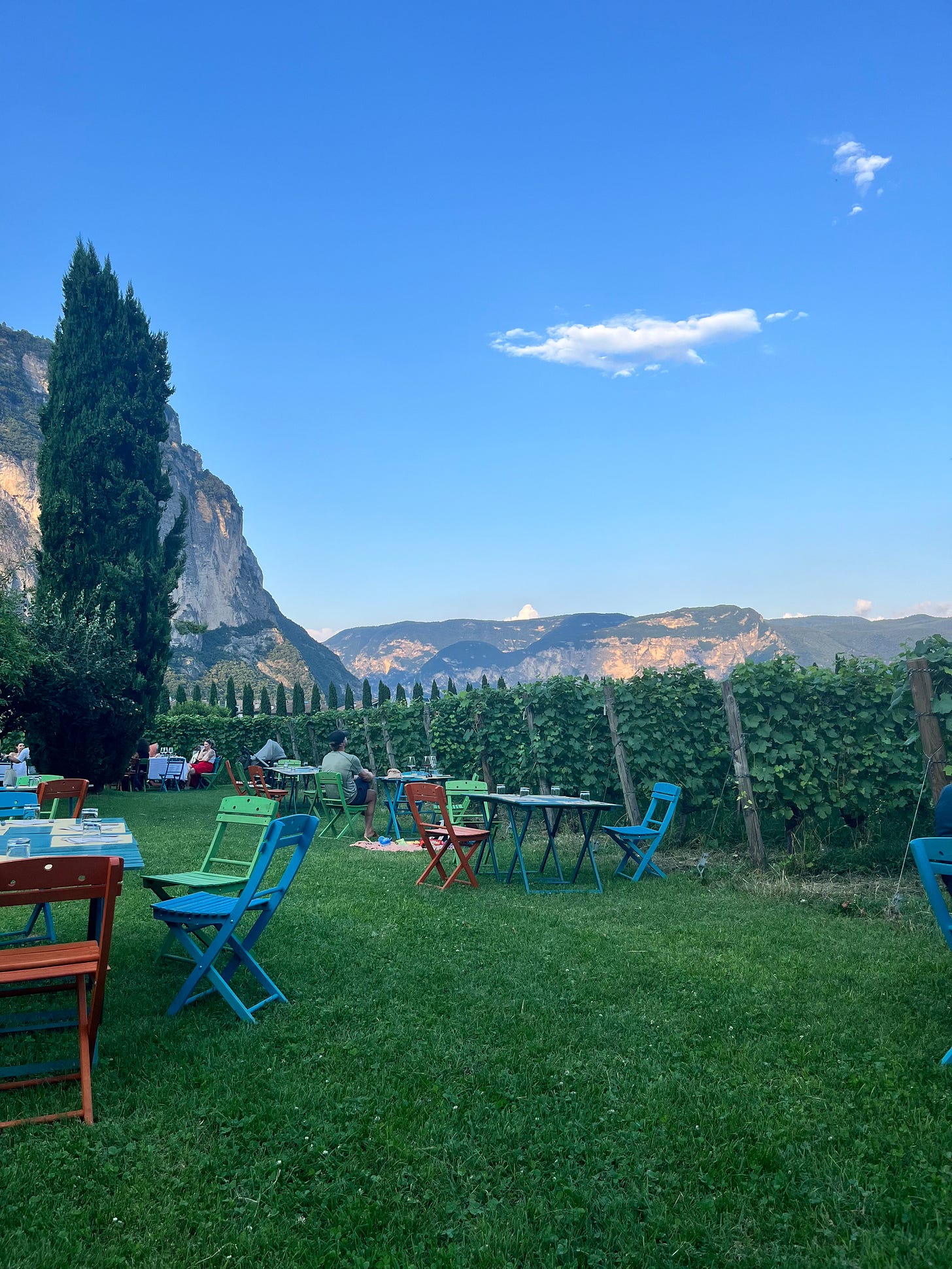
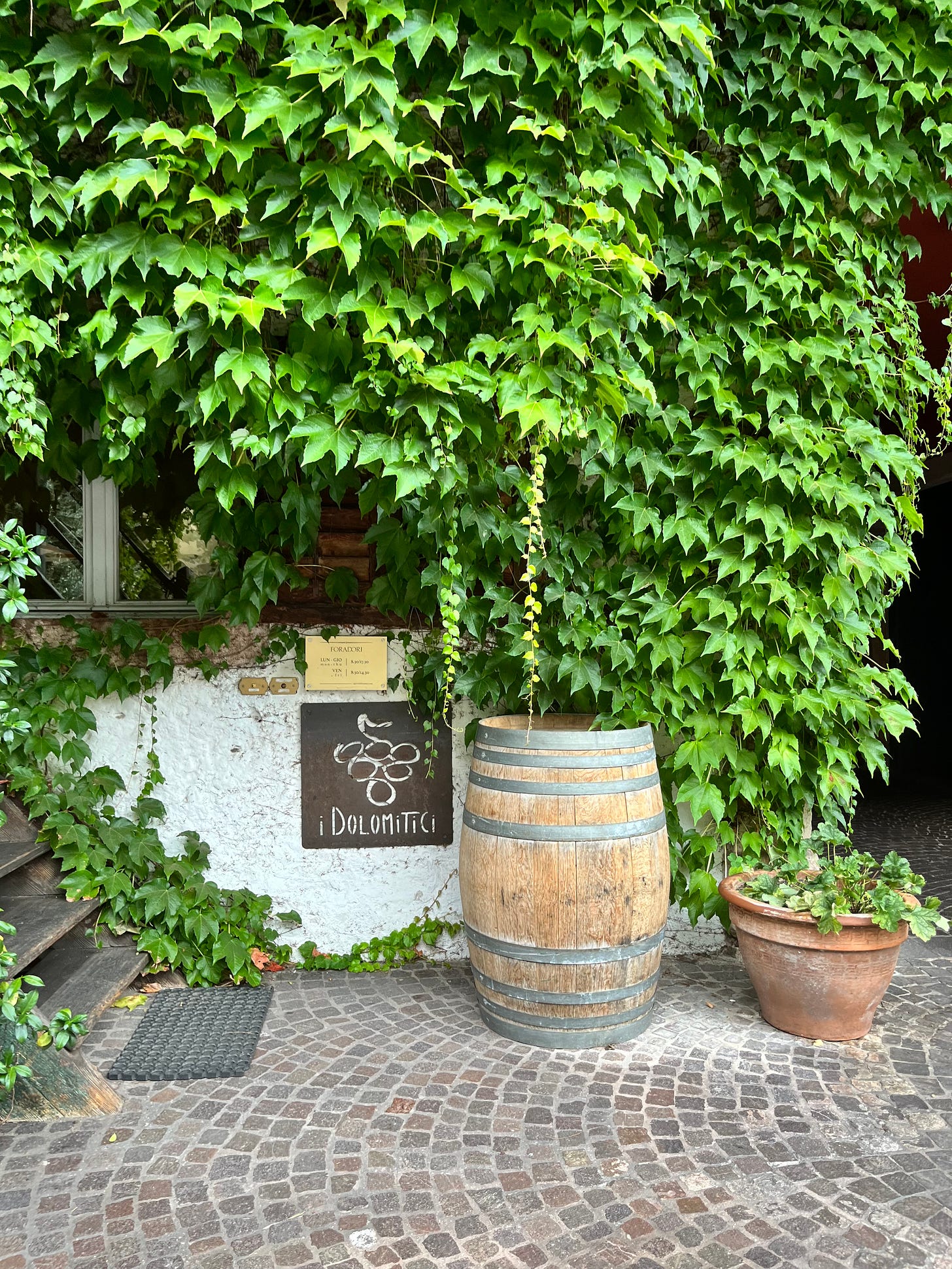
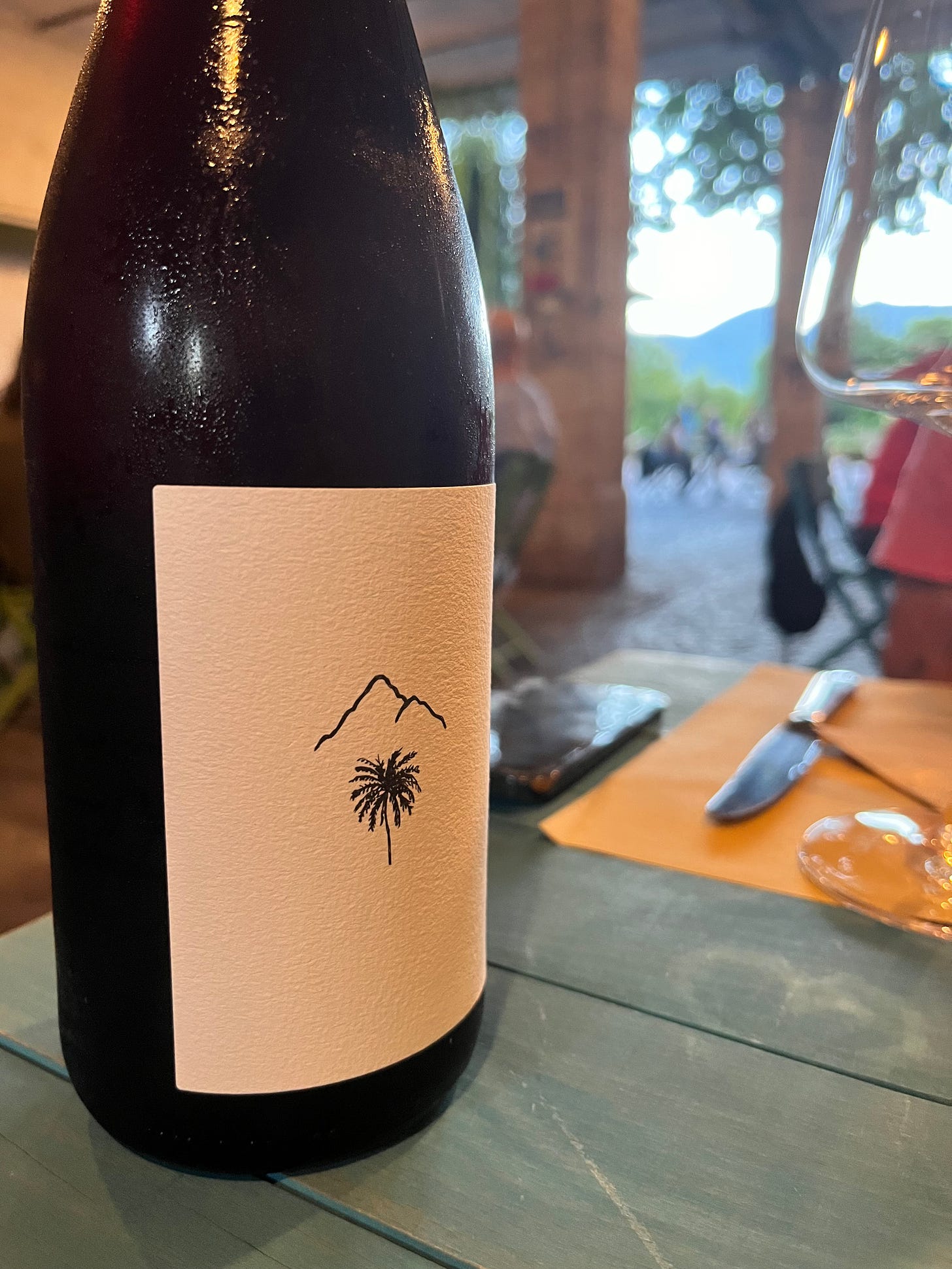
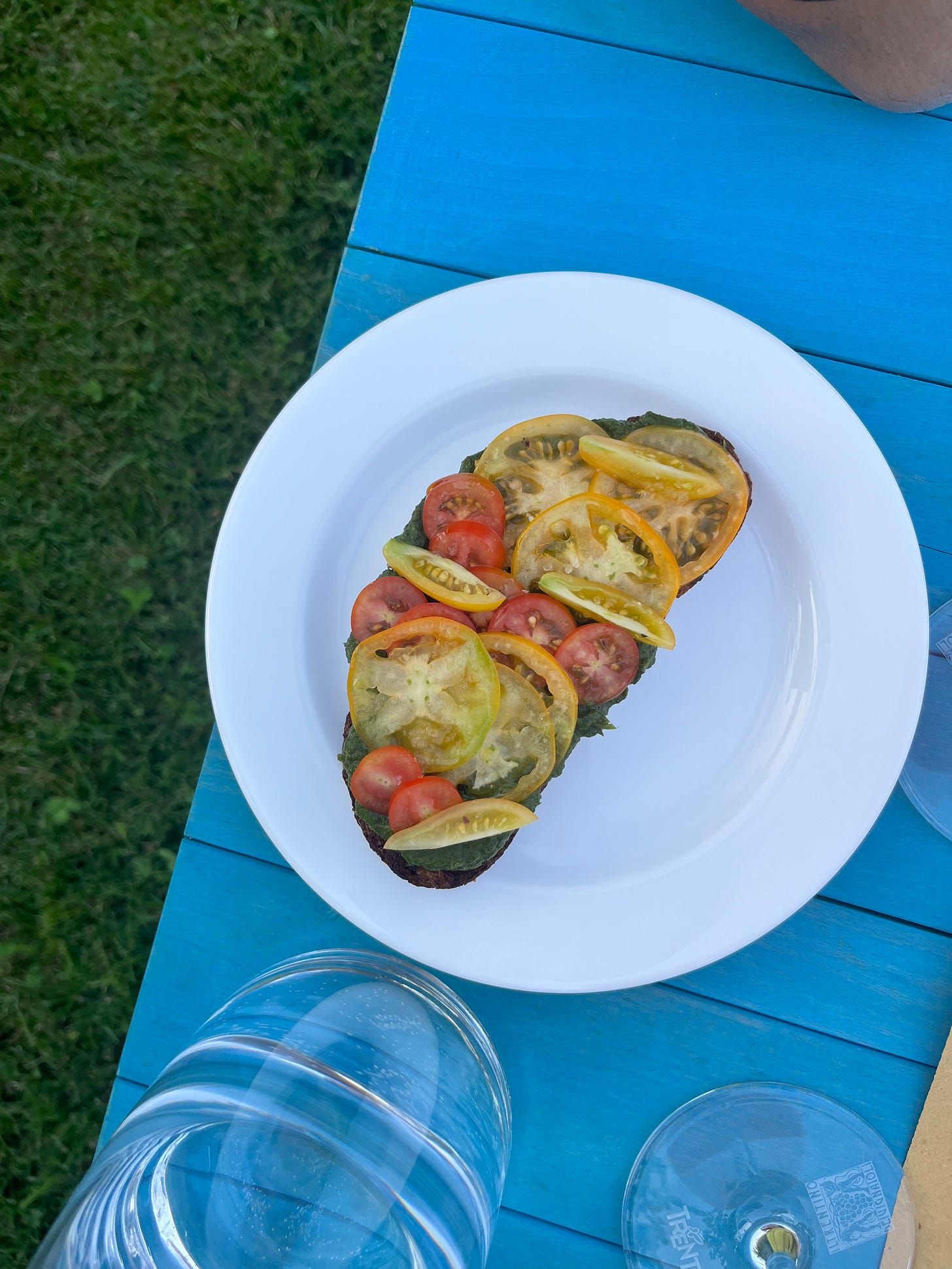
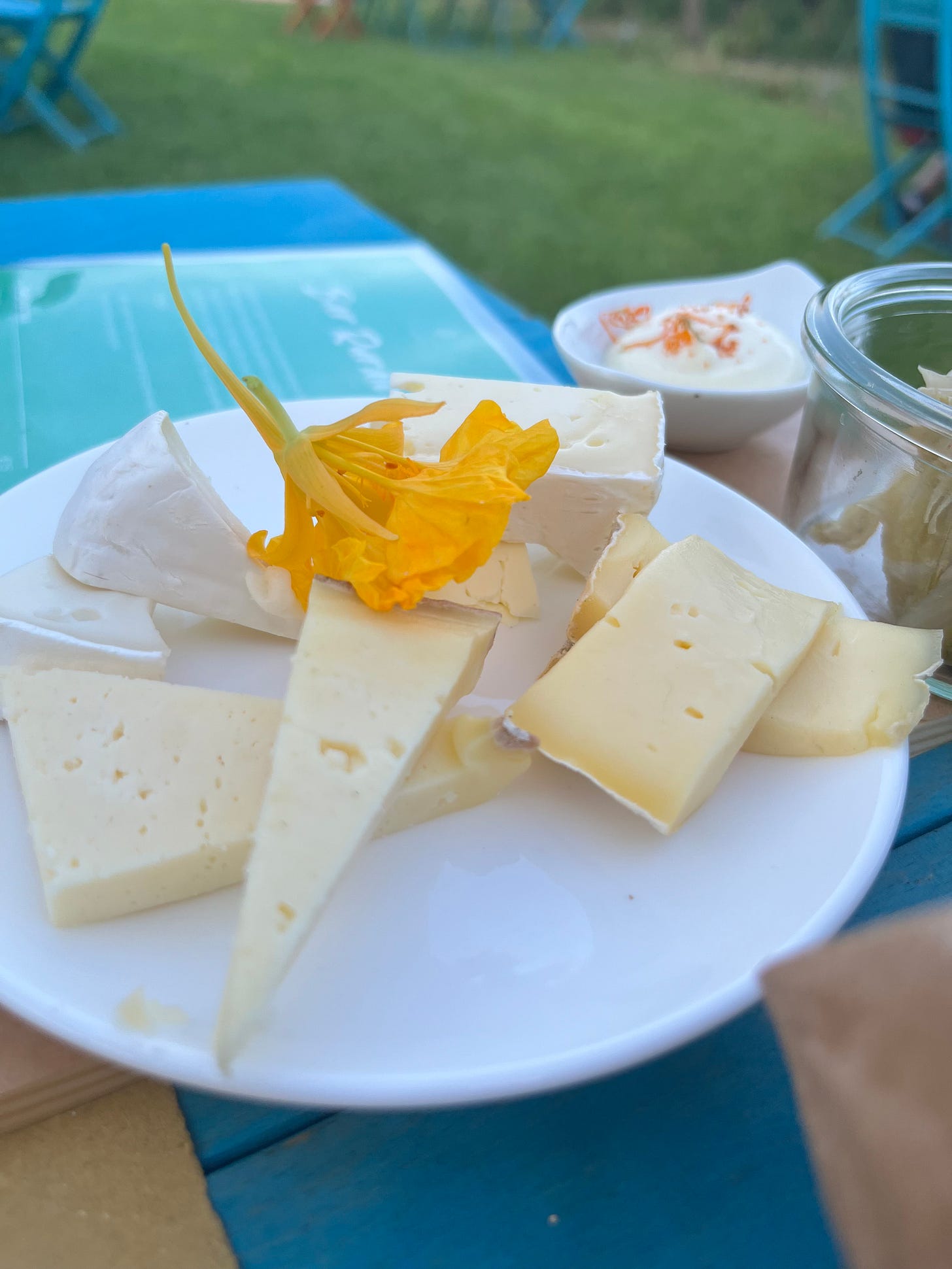
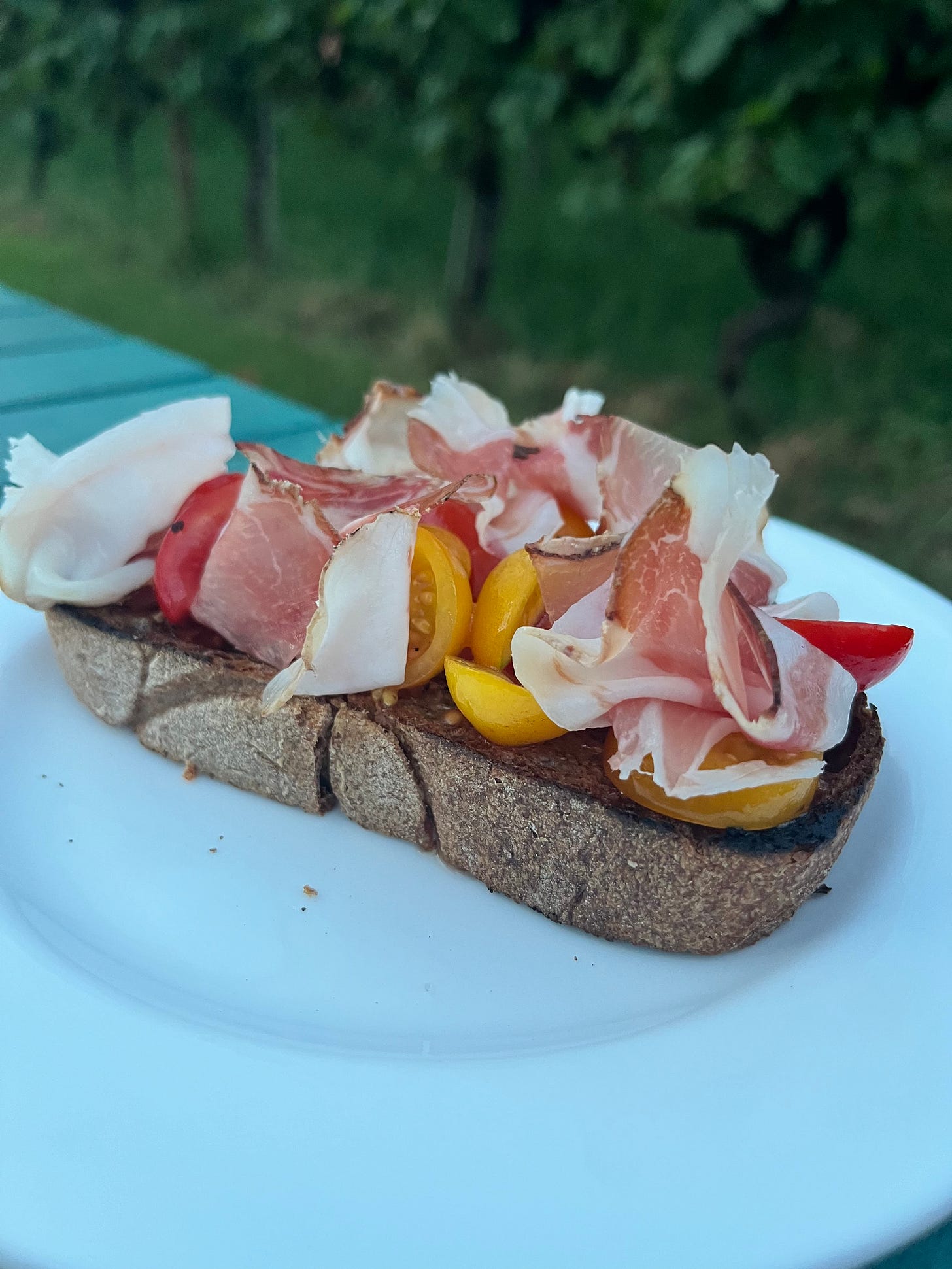
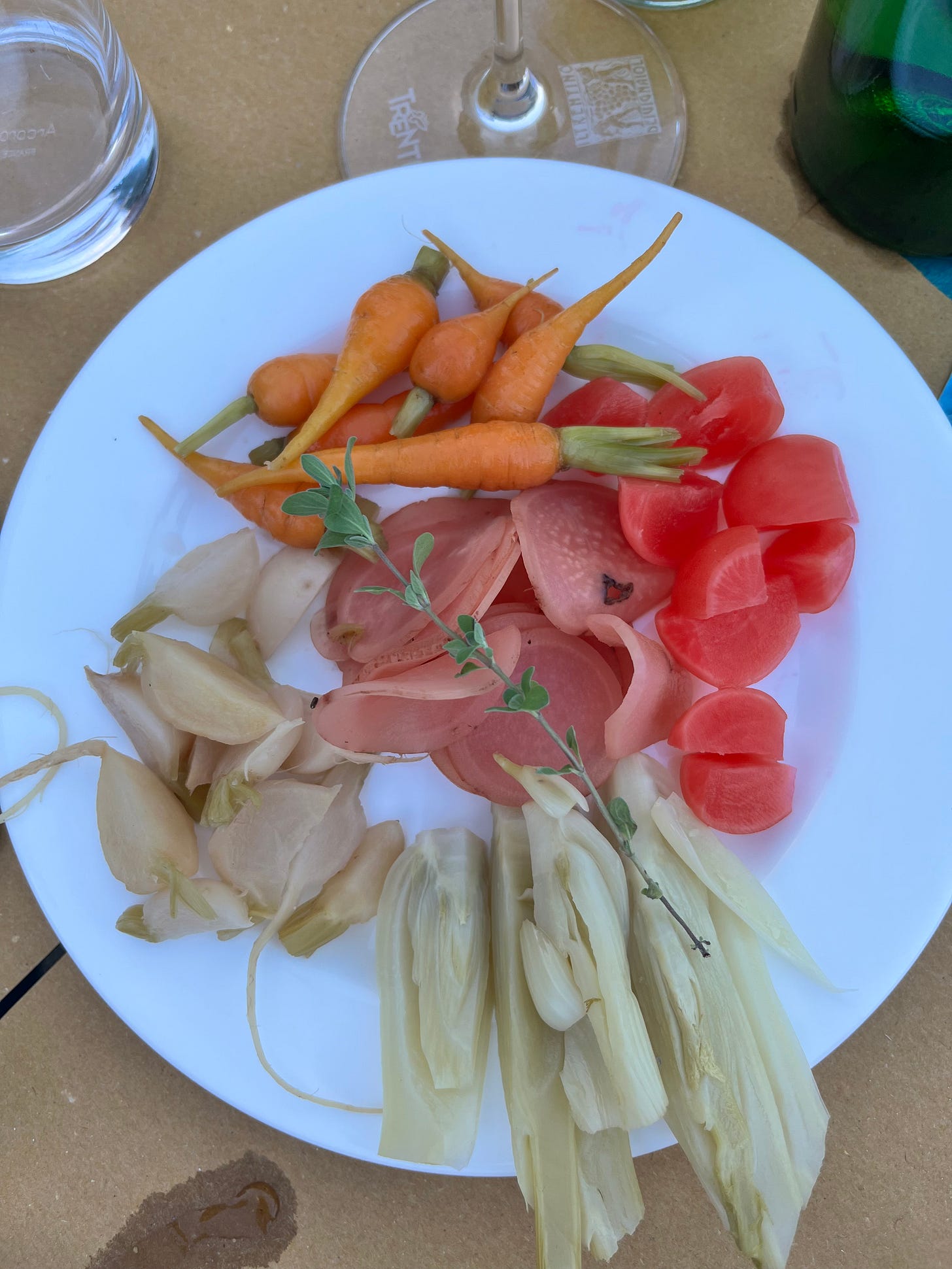
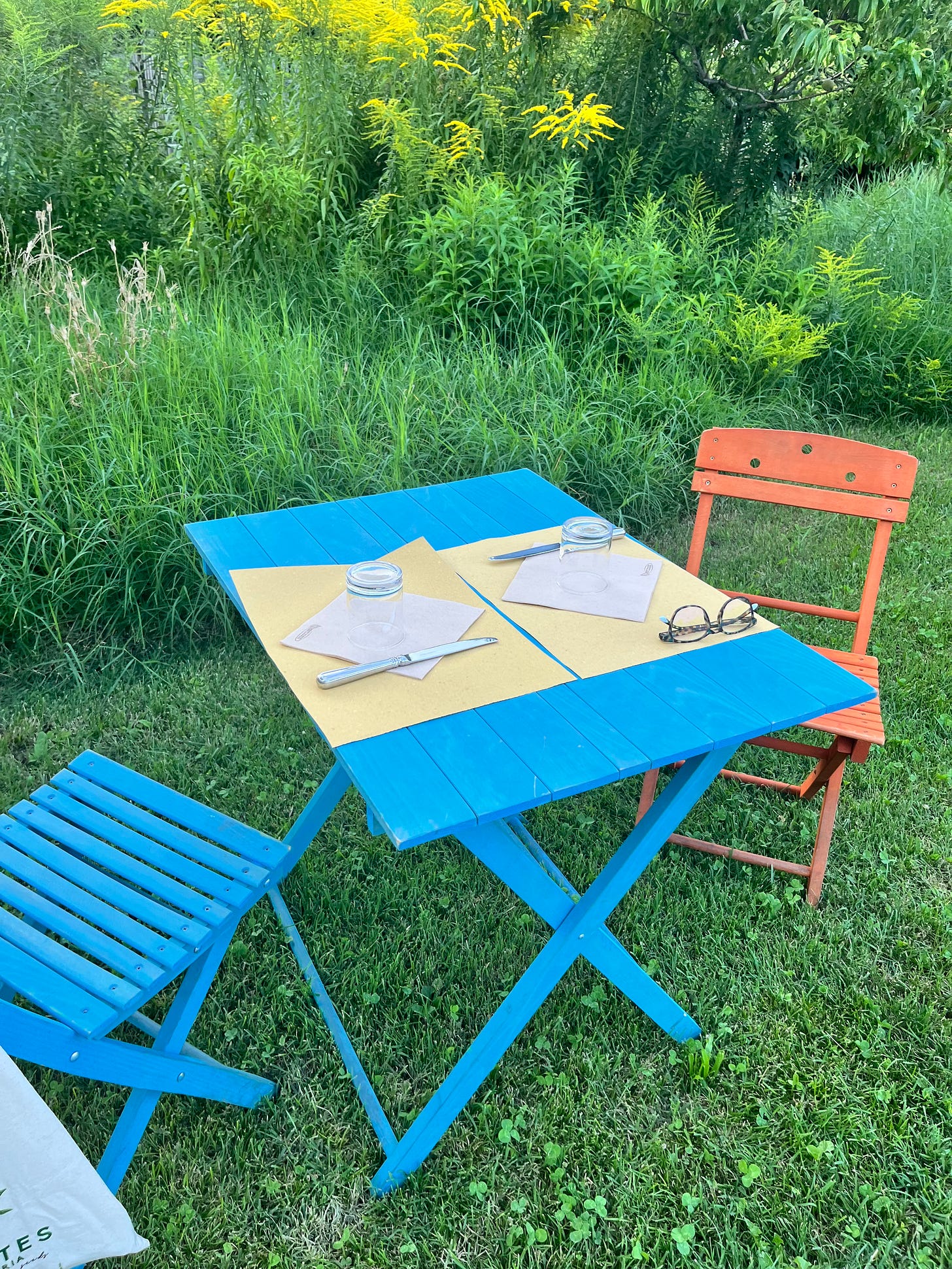
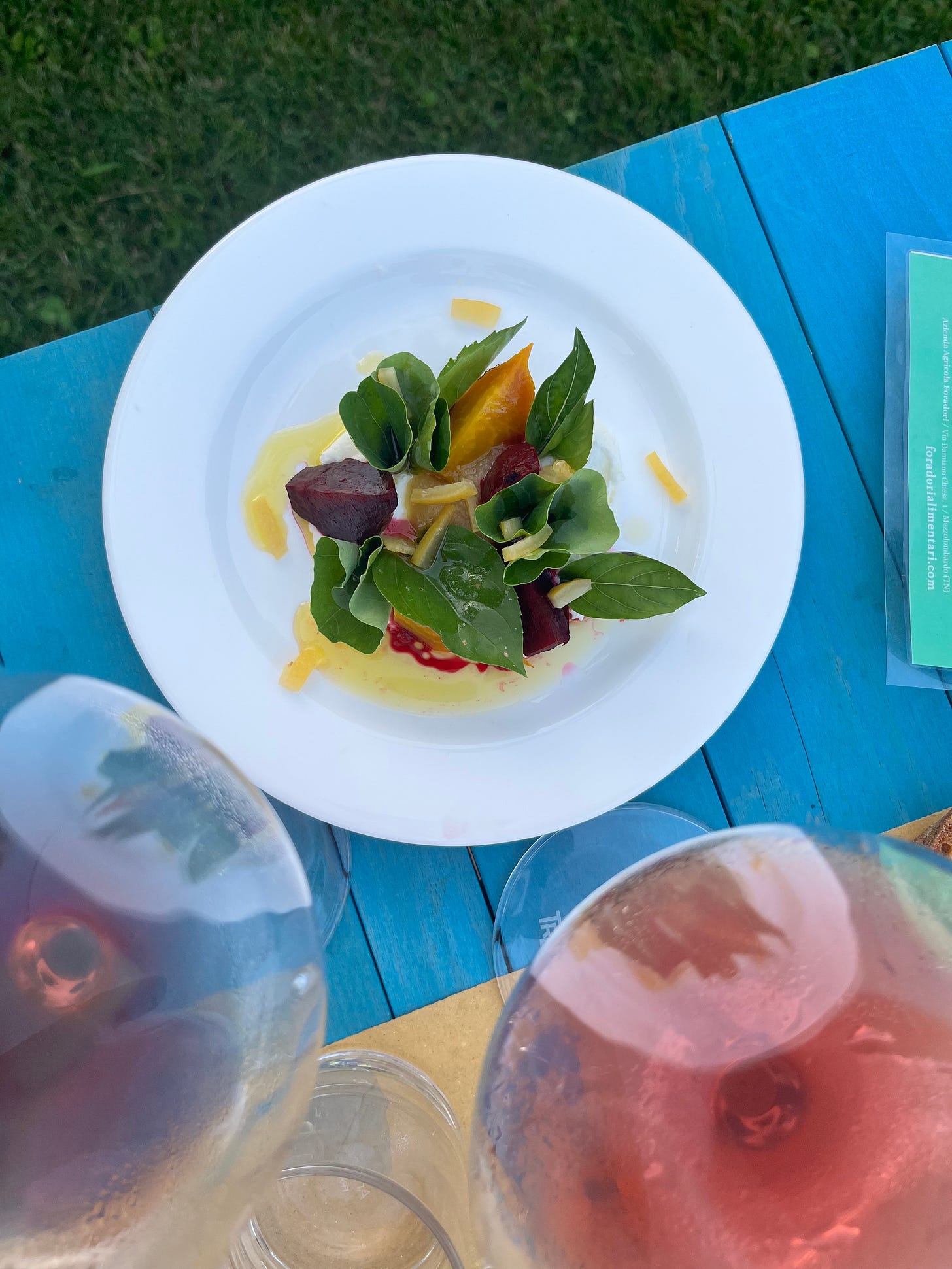
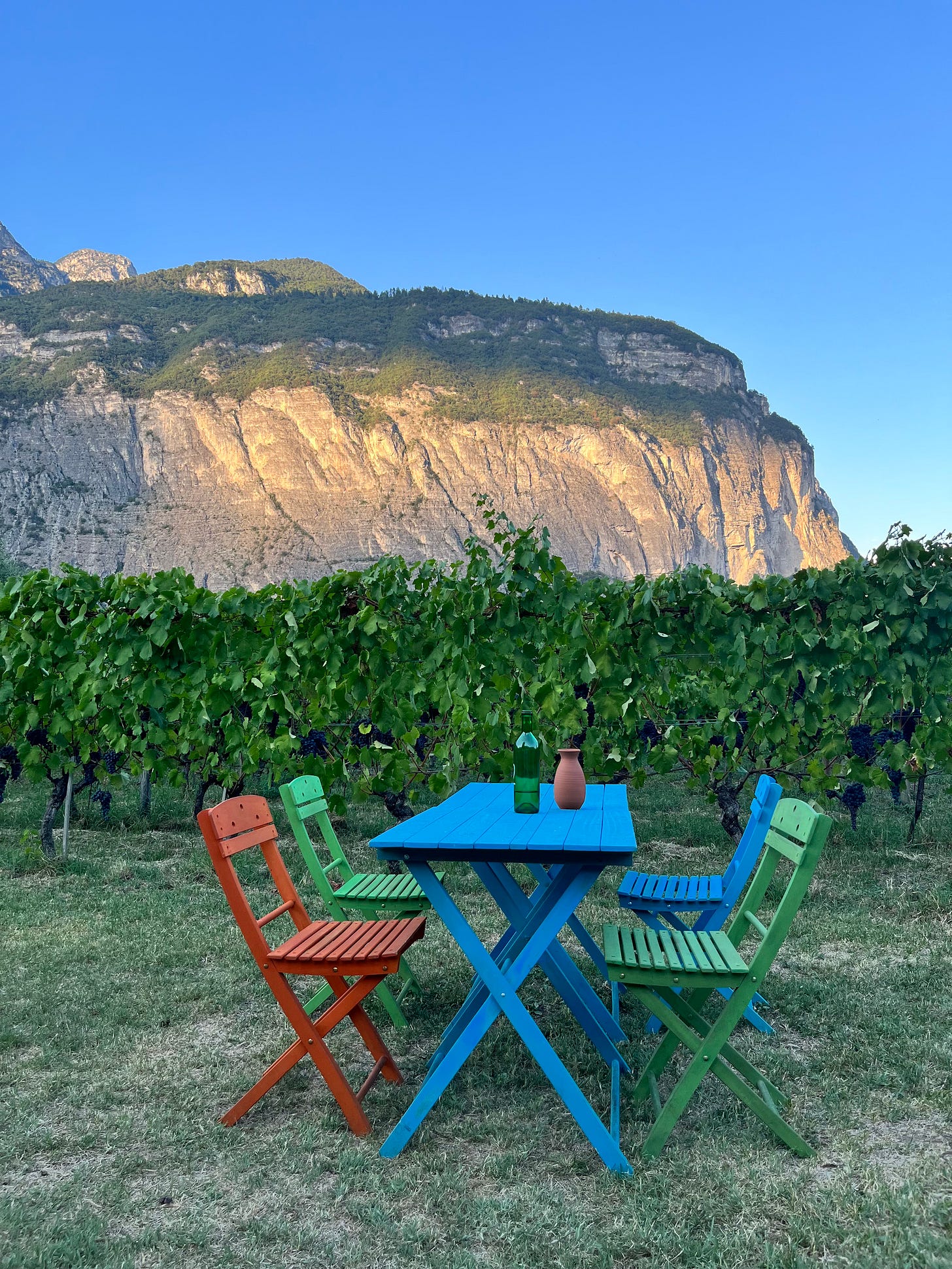
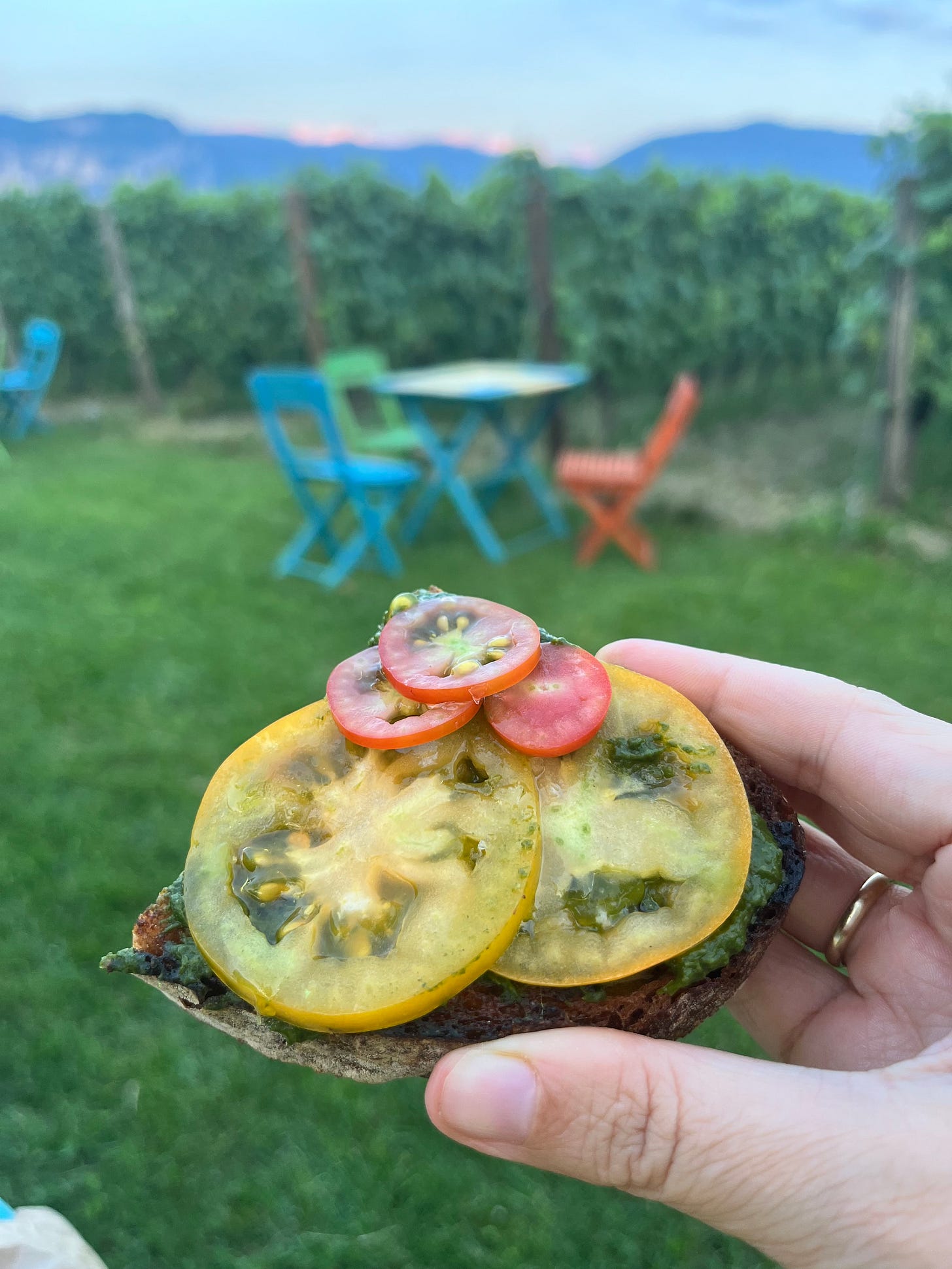
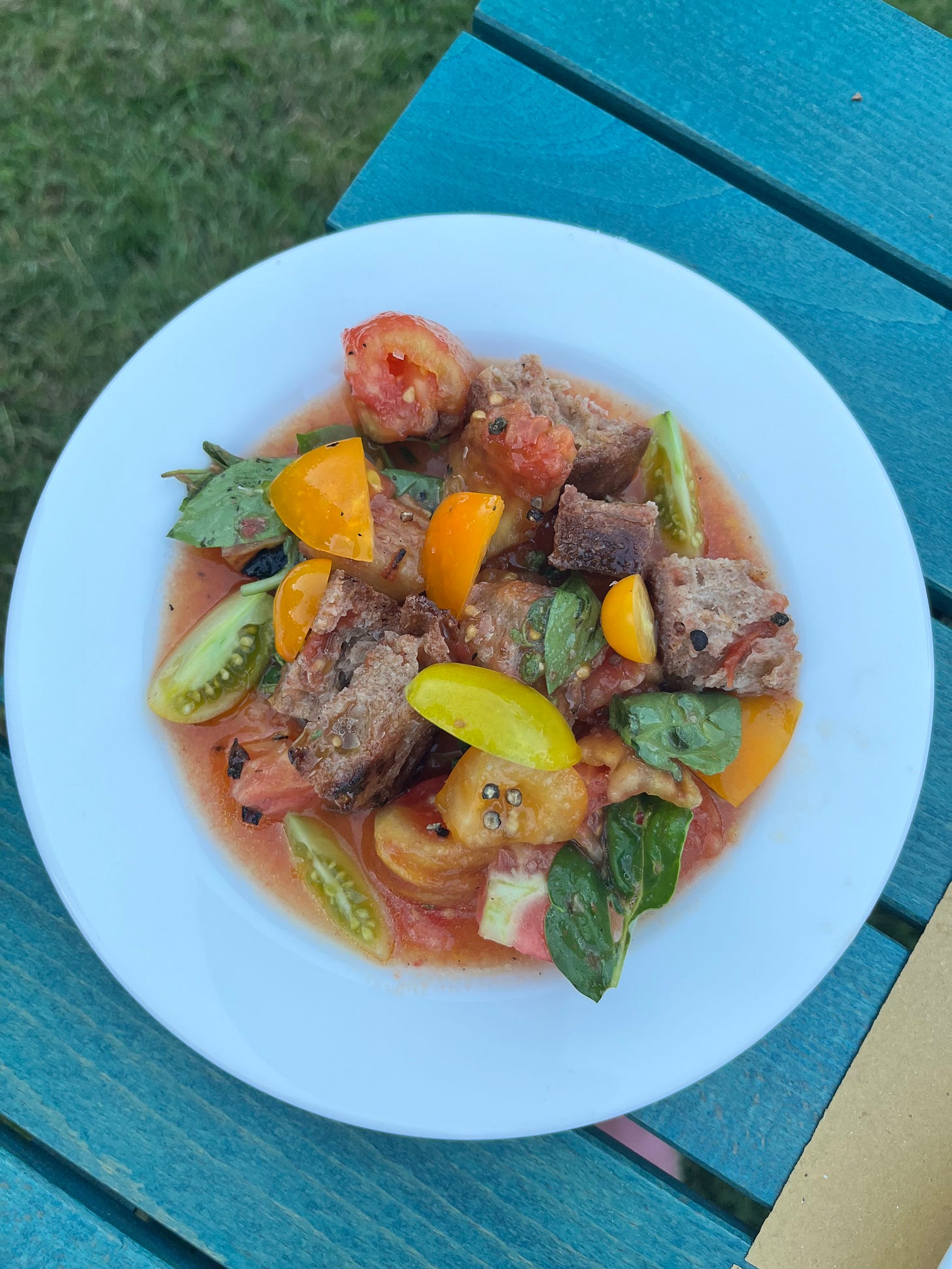
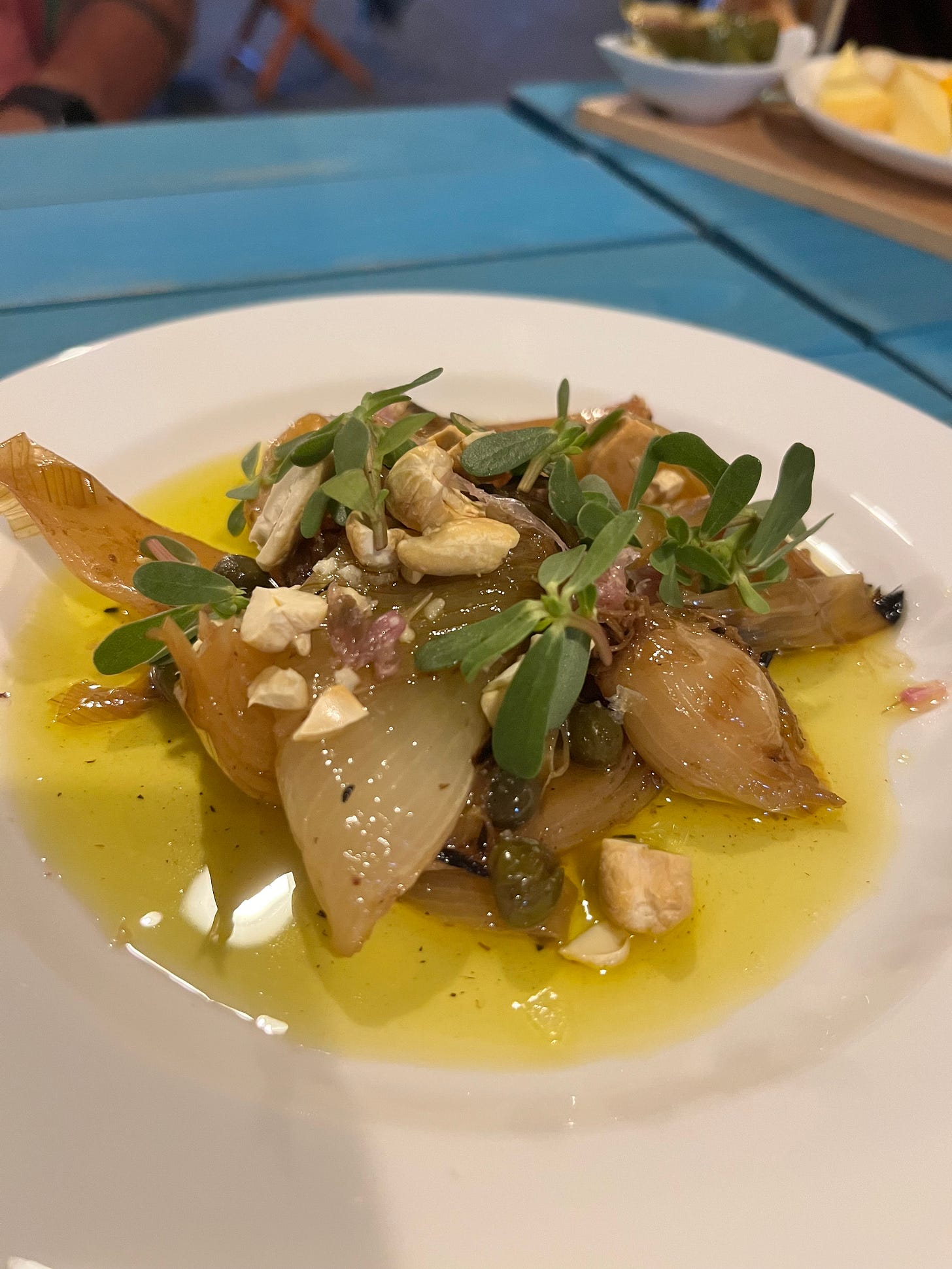
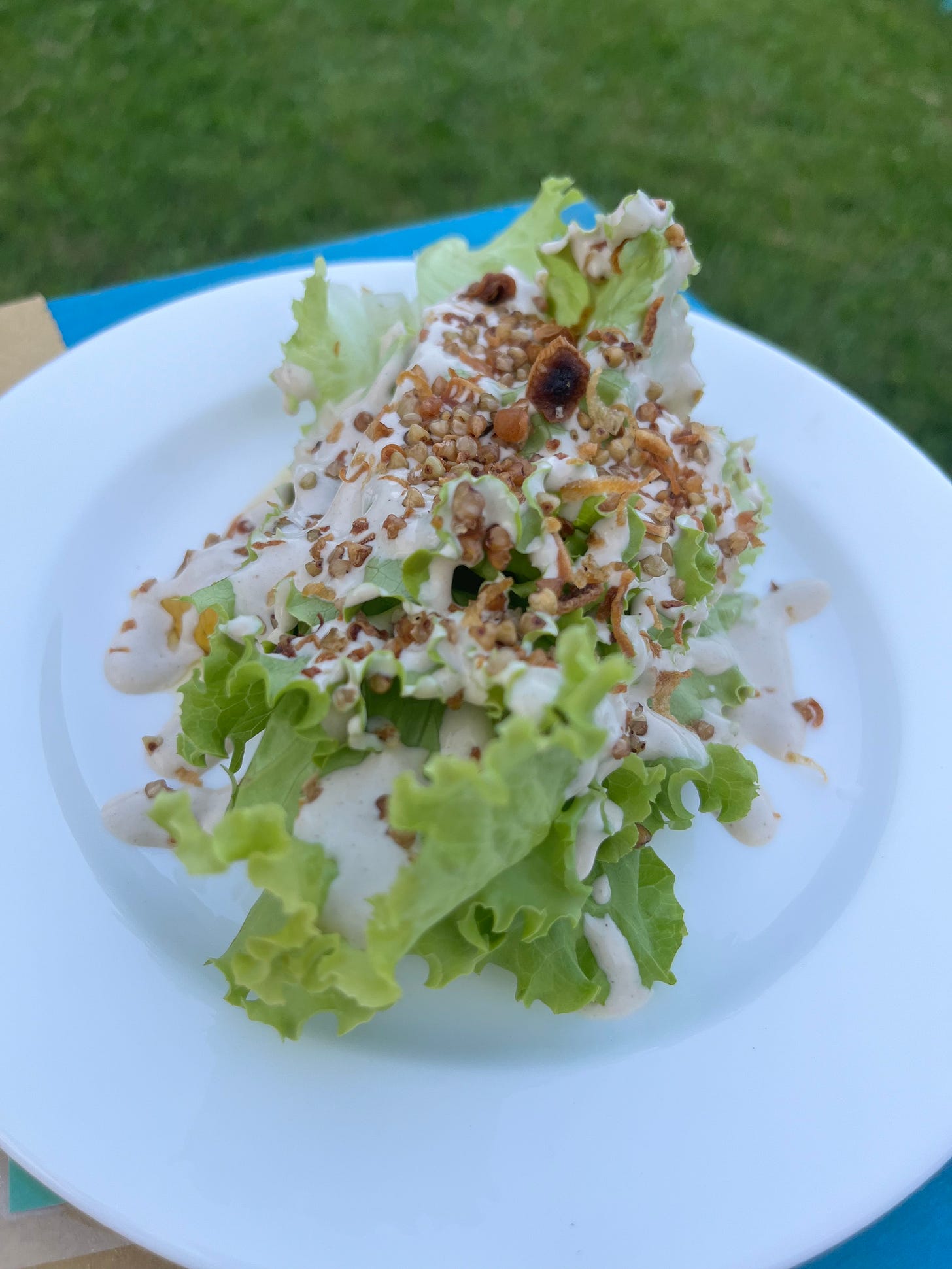
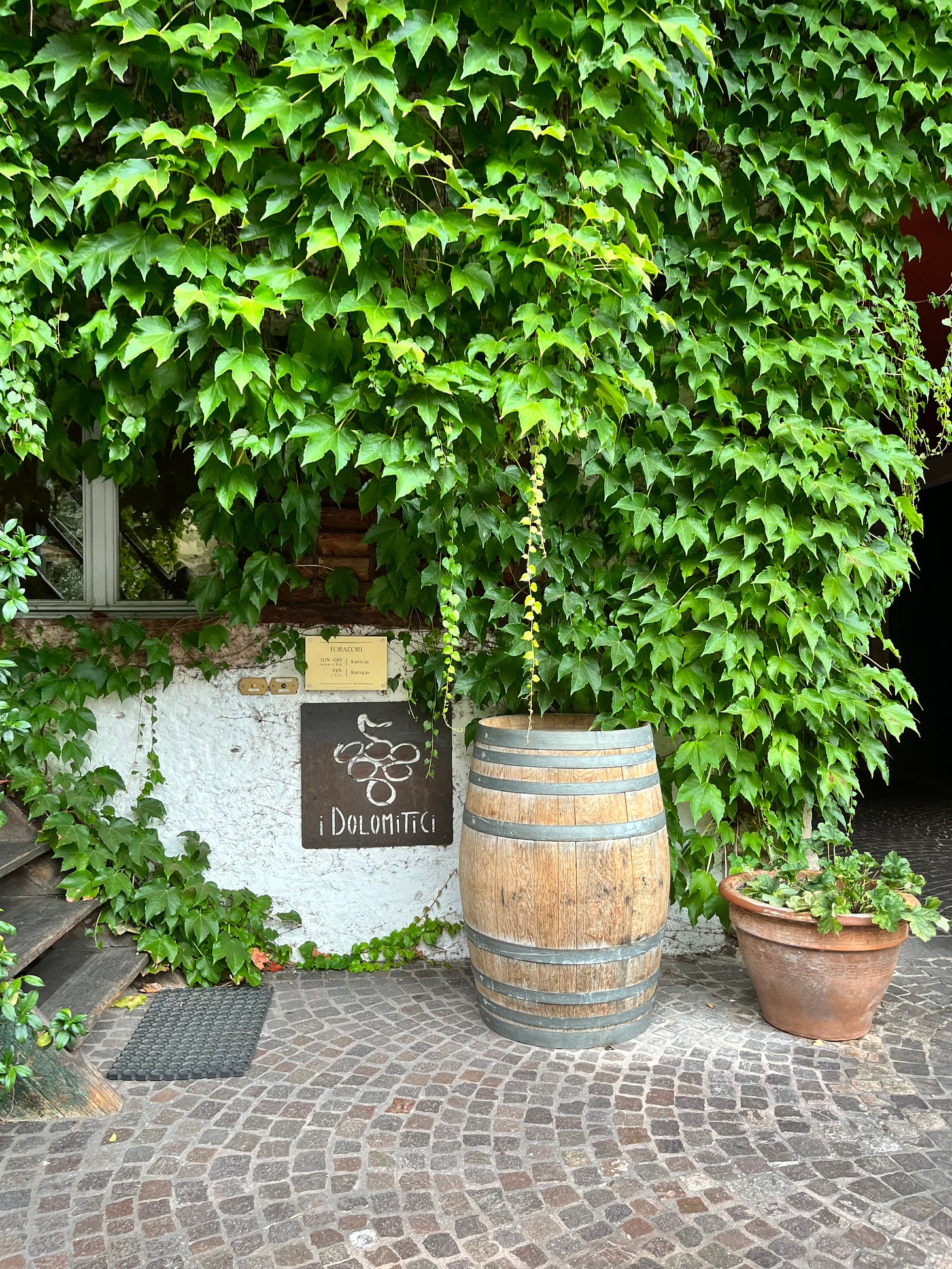
Such a nice dream of Foradori's world, exceptionally described! Nice to find my name among this beauty!
I swear this family was created to show us how to live. The first time I went to the winery I thought it was the most beautiful winery and most alive winery I have ever been to and that was like 15 years ago and I still think it.